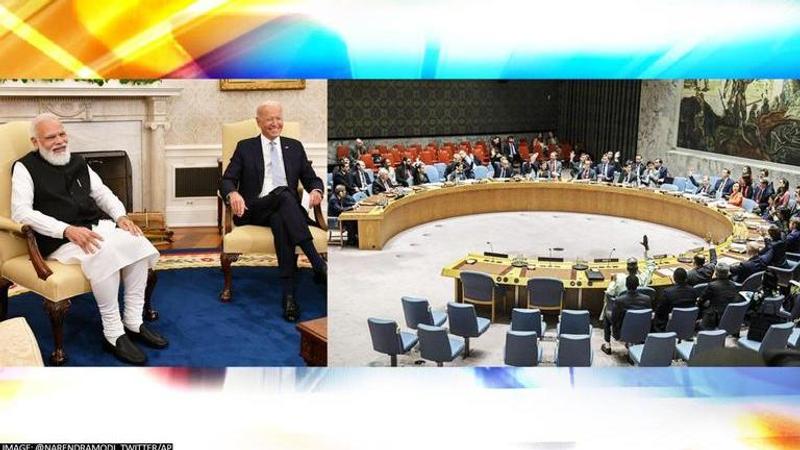Published 12:51 IST, September 25th 2021
US president Joe Biden backs India's bid for UNSC permanent seat; What will be its impact?
In a development that can have a big impact, US President Joe Biden backed India's candidature for a permanent seat at the UNSC in his meeting with PM Modi.

Advertisement
In a development that can have a big impact, US President Joe Biden endorsed India's candidature for a permanent seat at the United Nations Security Council (UNSC) during his bilateral meeting with Prime Minister Narendra Modi on Friday. The joint statement by the two sides read, "President Biden applauded India’s strong leadership during its UN Security Council Presidency in August 2021. In this context, President Biden also reiterated US support for India’s permanent membership on a reformed UN Security Council and for other countries who are important champions of multilateral cooperation and aspire to permanent seats on the UN Security Council."
Addressing a press briefing, Foreign Secretary Harsh Vardhan Shringla also mentioned that Joe Biden had appreciated India's cooperation with the US in the UNSC. This is seen as an acknowledgement of India's growing stature on the world stage. However, Barack Obama too had extended his support for India's bid for a UNSC seat way back in November 2010 when he was on his first official visit to India as the US president.
Impact of a permanent UNSC seat
Responsible for the maintenance of international peace and security, the UN Security Council has 5 permanent members — the US, the UK, China, France and Russia. At present, India is one of the 10 non-permanent members, who is elected by the United Nations General Assembly for a two-year term. The importance of the UNSC is underscored by the fact that it has the power of determining a threat to peace, imposing sanctions or even authorising the use of force if need be. While 9 votes are required to pass a decision, this has to include the concurring votes of all the permanent members.
Essentially, the P-5 countries have a veto power which implies that no proposal can be approved if either of them disagrees. If India does become a permanent member in the near future, it too will have the power to veto any decision which the country deems against its national interest. In the recent past, China rushed to the defence of its "all-weather friend" Pakistan by repeatedly blocking UNSC's move to blacklist Jaish-e-Mohammad chief Masood Azhar under the 1267 Al Qaeda Sanctions Committee.
On May 1, 2019, China finally lifted its veto after persistent diplomatic efforts by India resulting in Azhar finally being declared a global terrorist. A permanent seat on the UNSC would also help enhance the country's geopolitical importance as India would be at par with China's influence. Thus, India might play a leading role in global issues such as terrorism, the Afghanistan crisis, climate change, trade deals and so forth. This also assumes significance in the wake of the growing China-Pakistan nexus that is endangering the western and eastern front.
(Image: Twitter/AP)
12:51 IST, September 25th 2021




